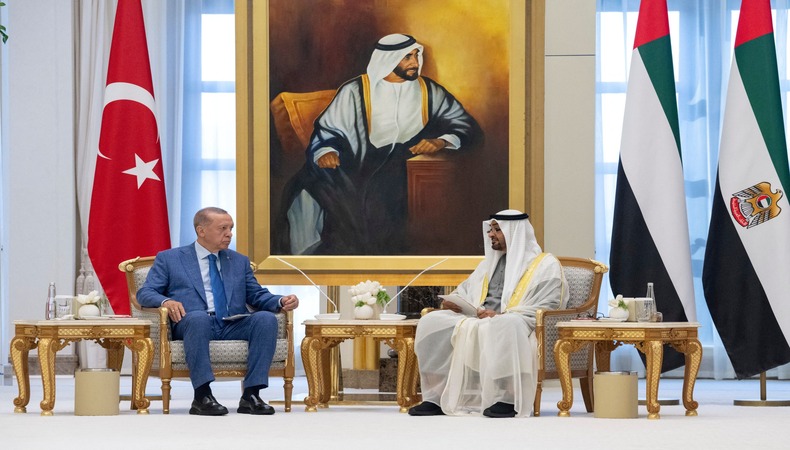Turkiye is Strategic Partner of GCC States

Turkiye and GCC bilateral trade volume has seen 11-fold increase, from $2.1 billion to $22.7 billion from 2002 to 2022. Exports and imports have increased, $9.5 billion and $13.3 billion, respectively.
Over the years, Turkiye and GCC relations have grown stronger and strategic. Turkiye represents a very significant strategic partner to the GCC states. Last week, Istanbul hosted the Gulf Cooperation Council-Turkiye Economic Forum to further bolster economic cooperation between the Gulf states and Ankara.
The two sides are now set to hold their sixth meeting of their strategic discussion in the first quarter of 2024. This will further strengthen their relationship. However, Turkiye and GCC relations have not been so cozy. There had been tension and bad blood. Their new geopolitical roles have not only affected their relationships, but also influenced the region and its current issues.
After the US-led invasion of Iraq in 2003, GCC states rose up as visible actors to stick together. The 2008 economic international crisis and the 2011 Arab Spring pushed them together to utilize their energy resources, capital accumulation and sovereign wealth funds, as well as political roles to their advantage. They also became more involved in regional crises. Turkey also harbored an ambitious strategy to become a major regional power with influence over the neighboring region as a prominent actor at the international level.
Turkiye Influence
Having played roles of mediator of peace and stability, and promoter of liberal values and democracy, Turkey increased its activities in the region. It has maintained its interests, balanced Iran’s increasing influence, and supported political transition after the Arab Spring. Ankara countered the emerging sub-state actors’ threats via hard power outside the country.
The GCC states and Turkiye signed a MoU in 2005 to develop cooperation in trade, investments, energy, transportation and cultural exchanges. In 2008, they launched a High-Level Strategic Dialogue Mechanism to develop cooperation in political, economic, defense and cultural fields. Experts believe that geopolitically, the new disorders in the Middle East, which threaten domestic stability and regional security, have increased GCC-Turkiye rapprochement.
Keep Reading
Jordan Axes Water-for-Energy With Israel
GCC and ASEAN to Embark on New Level of Cooperation
GCC, Turkiye Share Dynamic Relations
Emad Y. Kaddorah, regional expert and author of ‘The Rise of the GCC States and Turkey’, said the potential disintegration of Iraq and the consequences of the Arab Spring, such as the Syrian crisis, the Yemen war, escalation of the sectarian Shiite-Sunni strife, threats of the Islamic State in Iraq and the Levant (ISIL), as well as the expansion of Iran’s influence are all critical challenges that gave momentum to GCC-Turkish relations.
Despite having differences on some regional issues, the GCC and Turkiye have a dynamic and rapidly changing relation. GCC states are very keen to develop economic and political relations with Turkiye. Moreover, President Recep Tayyip Erdogan’s visit to Saudi Arabia, Qatar and UAE in July reflected a new era of economic cooperation with the Gulf region.
This also highlights their zeal to diversify partners in a multipolar world.




